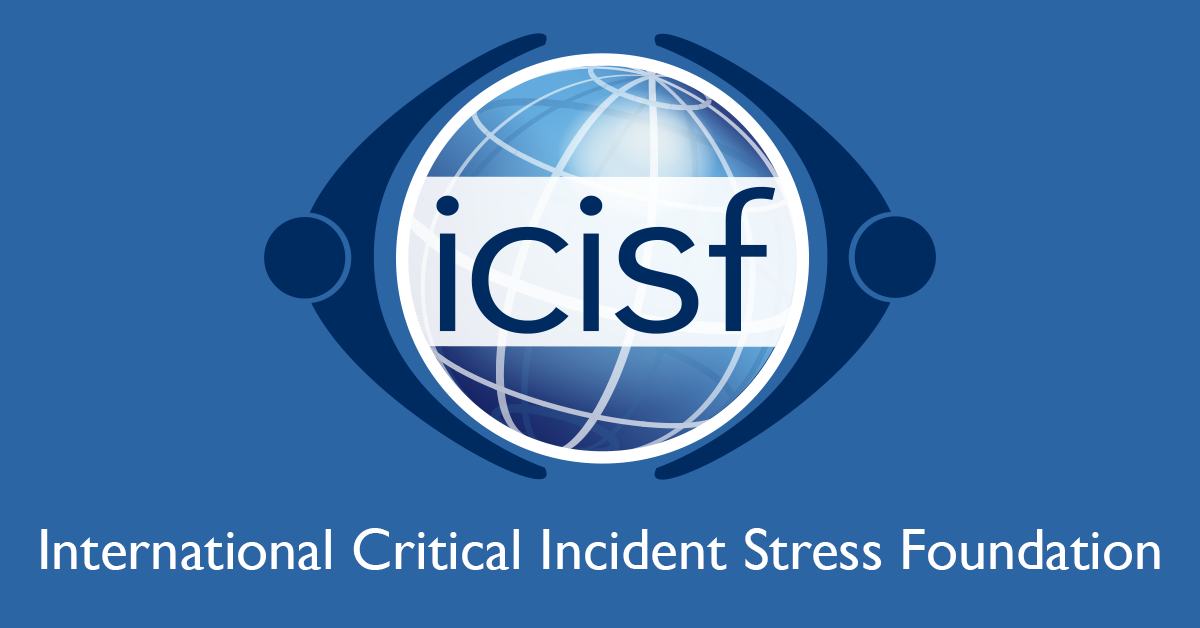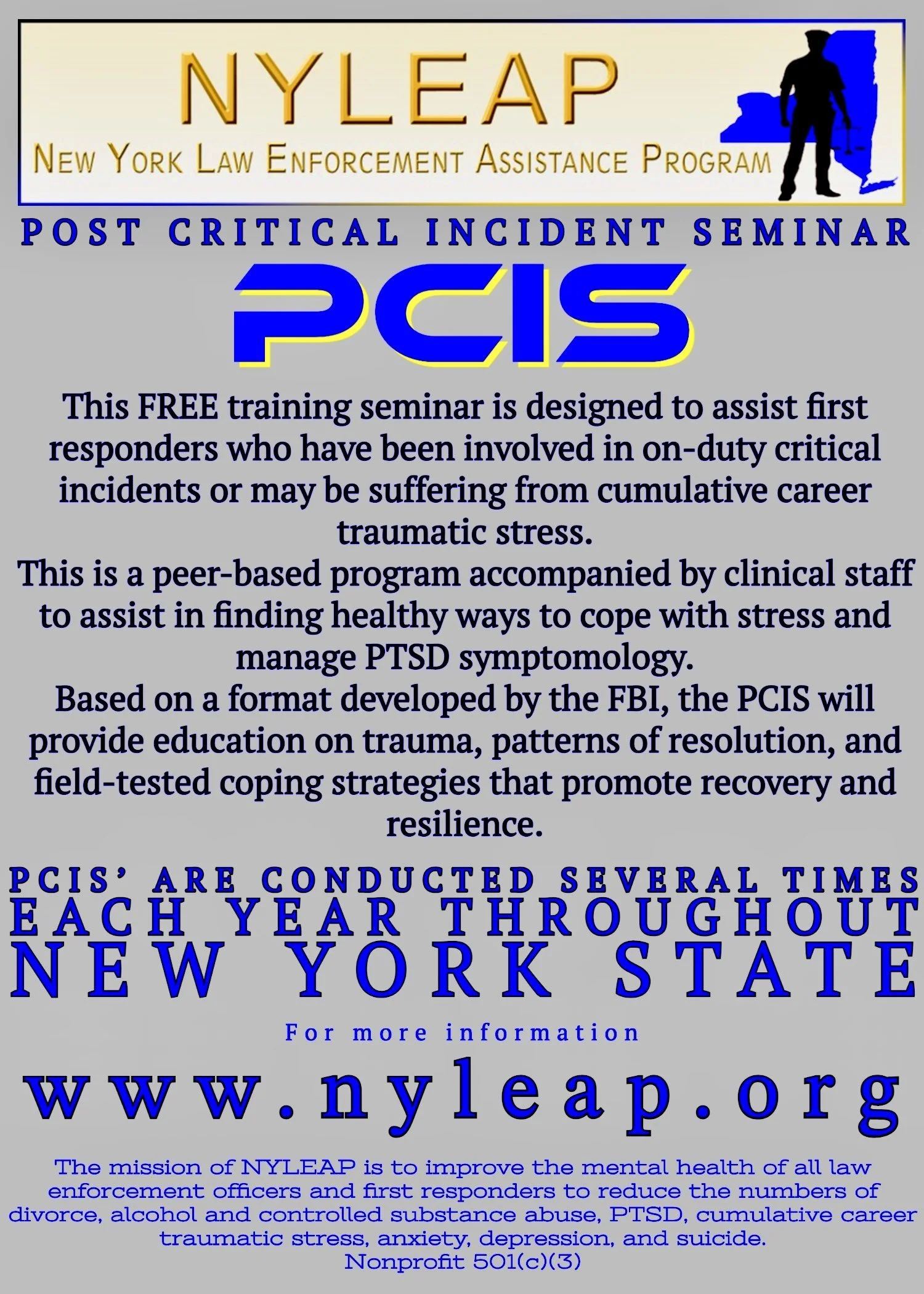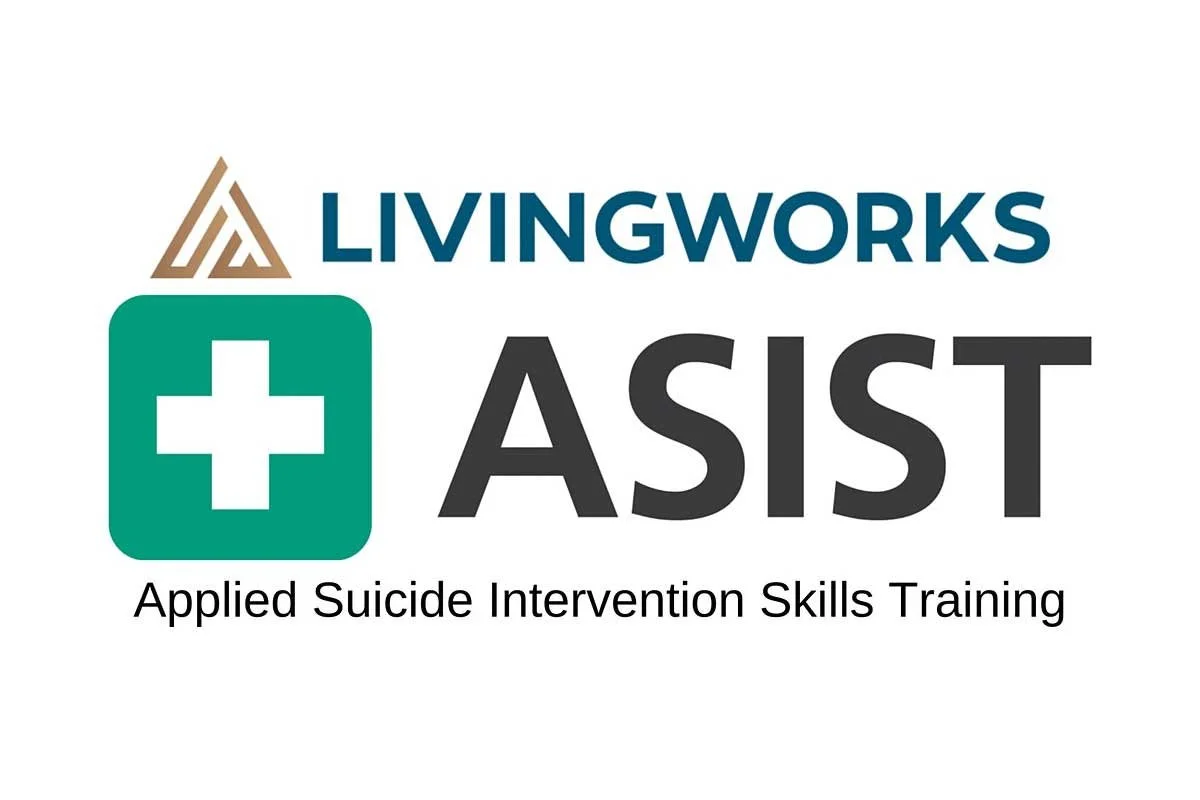Please contact us for upcoming trainings and events. This Event Calendar only lists trainings and events that are open for registration. Many trainings and events are scheduled throughout the remainder of the year, we just don’t post here until registration opens. Thank you.
EVENT CALENDAR







ASIST
LivingWorks ASIST. 2-day suicide intervention skills training open to First Responders at no cost.
https://preventsuicideny-selfreg.administrateweblink.com/catalogue

ASIST
2-day suicide intervention skills training course for First Responders at no cost.
https://preventsuicideny-selfreg.administrateweblink.com/catalogue

ASIST
2-day suicide intervention skills training course for First Responders at no cost.
https://preventsuicideny-selfreg.administrateweblink.com/catalogue


















ICISF Peer Para-Counseling Course
Today we see an unprecedented mix of unique stressors & disasters with limited psychological resources. The Critical Incident Stress Management continuum offers high risk populations seeking a strategic crisis response; one that holistically builds the resilience of those in need. Crisis Informed Peer Para-Counseling (CIPP) expands the support tools of peer counselors to collectively cope with trauma and disasters. CIPP will become the 1:1 follow up service to the CISD. The unprecedented mix of unique stressors & disasters with limited psychological resources means at risk populations are seeking a strategic crisis response; one that holistically builds the resilience of those in need and expands the support tools of peer counselors to collectively cope with trauma.
Learning Objectives:
Define the CIPP model
Define terms in the field of peer support & crisis intervention
Enhance skills in SAMSHA peer para counseling eight dimensions guidelines. Review Empathy versus Sympathy as a core principle of connection-Theresa Wiseman/Four Principles of Empathy- Perspective Taking/ Stay out of judgement, recognize emotions, communication.
Define Mental health, addiction & trauma related disorders
Define Peers as prevention educators
Define Psychological First Aid
Identify National, state & community behavioral healthcare & human service resources
Define CIPP episode of care
Prerequisites: Completion of ICISF Assisting Individuals in Crisis and ICISF Group Crisis Intervention Courses

ICISF Group Crisis Intervention
ICISF GCI (basic)
email brianflynn@nyleap.org for registration information

ICISF Assisting Individuals in Crisis
ICISF AIC (basic)
email brianflynn@nyleap.org for registration information










